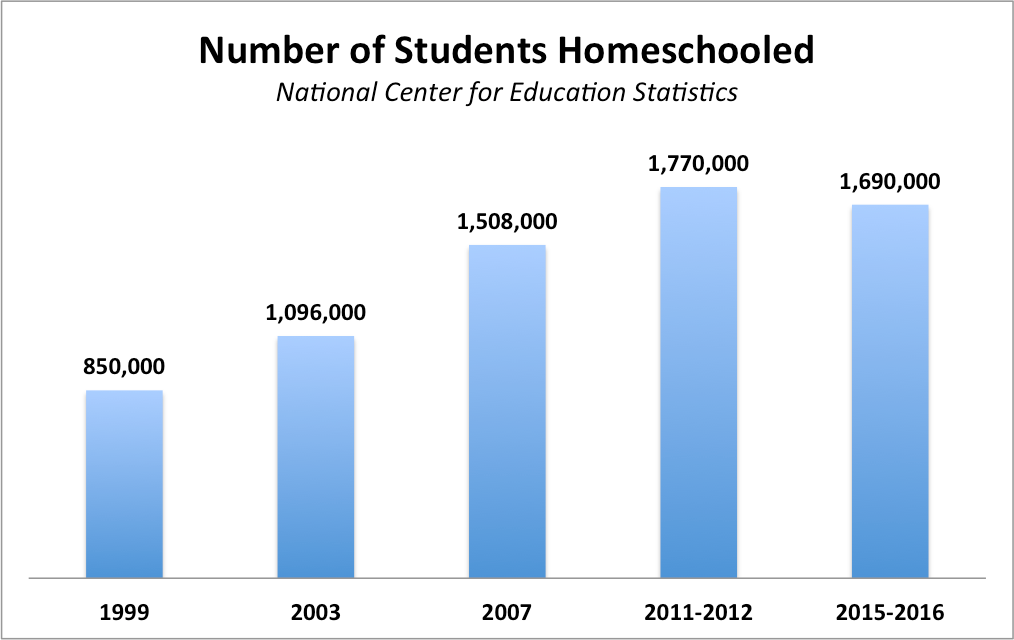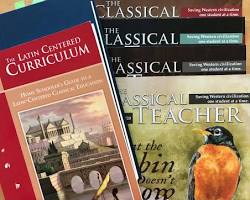Introduction
Homeschooling, also known as home education, is a form of education in which parents or guardians teach their children at home. In recent years, homeschooling has become increasingly popular, with millions of children being homeschooled worldwide.
There are many reasons why parents choose to homeschool their children. Some parents are concerned about the quality of education their children would receive in a traditional school setting. Others want to provide their children with a more individualized education that is tailored to their unique needs and interests. Still others have religious or philosophical objections to traditional schooling.
A Brief History of Homeschooling

The roots of homeschooling can be traced back to ancient times. In Greece, for example, philosophers such as Plato and Aristotle tutored their students at home. Homeschooling also had a long tradition in Europe during the Middle Ages.
In the United States, homeschooling began to gain popularity in the 1970s. This was due in part to the rise of the Christian homeschooling movement. Today, there are an estimated 2.5 million homeschooled children in the United States.
Homeschooling Methods
There are many different homeschooling methods, each with its own advantages and disadvantages. Some of the most common homeschooling methods include:
-
Classical homeschooling: This method is based on the traditional trivium of grammar, logic, and rhetoric. Classical homeschoolers typically use a core curriculum of Latin, Greek, math, history, and literature.

Classical homeschooling method - Unschooling: This method is based on the belief that children learn best through natural exploration and discovery. Unschooling parents do not provide their children with a formal curriculum or schedule. Instead, they allow their children to follow their own interests and learn at their own pace.
- Charlotte Mason homeschooling: This method is based on the educational philosophy of Charlotte Mason. Mason believed that children learn best through living books, which are books that are written in a clear and engaging style. Mason homeschoolers typically use a wide variety of living books to teach their children
- Waldorf homeschooling: This method is based on the educational philosophy of Rudolf Steiner. Waldorf homeschoolers focus on providing their children with a well-rounded education that includes academics, arts, and crafts.
- Eclectic homeschooling: This method is a combination of two or more homeschooling methods. Eclectic homeschoolers typically choose the methods that they believe will work best for their children and their family.

Eclectic homeschooling method
Homeschooling Curriculum
There are many different homeschooling curriculums available. Some curriculums are designed to be used with a specific homeschooling method, while others are more flexible. Parents can also choose to create their own curriculum.
When choosing a homeschooling curriculum, it is important to consider the following factors:
- The child’s age and learning style
- The parent’s teaching style
- The family’s educational goals
- The family’s budget
Homeschooling Laws
Homeschooling laws vary from state to state. In most states, parents are required to notify the state that they are homeschooling their children. Some states also have requirements for teacher qualifications, curriculum, and testing.
Parents who are considering homeschooling should research the laws in their state. They can also contact their state homeschooling association for more information.
Benefits of Homeschooling
There are many benefits to homeschooling. Some of the most common benefits include:
-
Individualized education: Homeschooling allows parents to tailor their children’s education to their unique needs and interests.
- Parental control: Homeschooling parents have complete control over their children’s education. They can choose the curriculum, the teaching methods, and the pace of learning.
- Safe and supportive learning environment: Homeschooling can provide a safe and supportive learning environment for children who may be struggling in a traditional school setting.
- Flexible schedule: Homeschooling families can set their own schedules. This can be helpful for families with children who have special needs or who are involved in extracurricular activities.
- Religious or philosophical freedom: Homeschooling allows parents to teach their children their own religious or philosophical beliefs. This is a major reason why many families choose to homeschool. In a traditional school setting, children are exposed to a variety of viewpoints, some of which may conflict with their parents’ beliefs. Homeschooling allows parents to control the information that their children are exposed to and to ensure that their children are being taught in accordance with their family’s values.
- Academic achievement: Studies have shown that homeschooled children often perform as well as or better than their traditionally schooled peers on standardized tests.
- Emotional well-being: Homeschooled children often report feeling happier and more confident than their traditionally schooled peers.
- Stronger family bonds: Homeschooling can provide families with more time together, which can lead to stronger family bonds.

Stronger family bonds - Unique learning experiences: Homeschooling allows parents to provide their children with unique learning experiences that would not be possible in a traditional school setting. For example, homeschooled children may have the opportunity to travel extensively, learn a foreign language, or pursue a particular interest in depth.
Challenges of Homeschooling
There are also some challenges to homeschooling. Some of the most common challenges include:
-
Time commitment: Homeschooling requires a significant time commitment from parents. Parents must be prepared to spend several hours each day teaching their children.
- Lack of structure: Homeschooling can lack the structure of a traditional school setting. This can be challenging for both parents and children.
- Socialization: Some people worry that homeschooled children will not have enough opportunities to socialize with other children. However, there are many ways for homeschooled children to socialize, such as through extracurricular activities, co-ops, and homeschooling groups.

Socialization challenge of homeschooling - Legal challenges: In some cases, homeschooling families may face legal challenges from government officials. However, these challenges are usually rare.
- Burnout: Homeschooling parents can experience burnout. It is important for homeschooling parents to take breaks and to find support from other homeschooling families.
Homeschooling Support Groups
There are many homeschooling support groups available. These groups can provide parents with support, encouragement, and advice. Homeschooling support groups can also be a great way for homeschooled children to socialize with other children.
Homeschooling Resources
There are many homeschooling resources available. These resources can provide parents with information on homeschooling laws, curriculum, and teaching methods.
Homeschooling Tips
- Set realistic expectations: Homeschooling is not a magic bullet. It takes time, effort, and dedication to be successful.
- Find a support network: Connect with other homeschooling families for support and encouragement.
- Be flexible: Homeschooling is a journey, not a destination. Be prepared to adapt your plans as needed.
- Make learning fun: Learning should be enjoyable for both parents and children. Find ways to make learning fun and engaging.
- Take breaks: Homeschooling can be burnout. Be sure to take breaks for yourself and your children.
Conclusion
Homeschooling is a viable option for many families. If you are considering homeschooling, do your research and talk to other homeschooling families to learn more about the benefits and challenges. With careful planning and execution, homeschooling can be a rewarding experience for both parents and children.




Be First to Comment